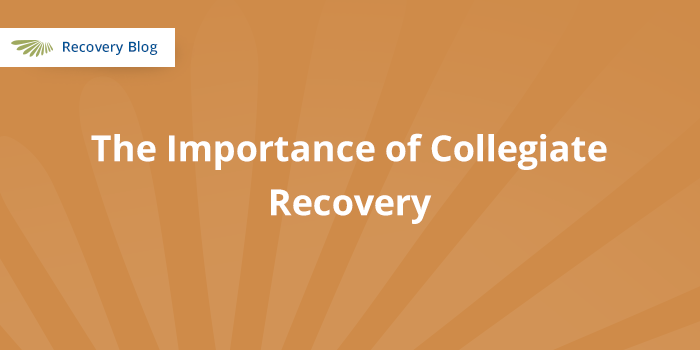What is SMART Recovery?
Overcoming a substance abuse disorder is a slow and a challenging process but you are never alone...

Young adults often face unique challenges when they begin a life in college. Entering a new system, making new friends and coping with increased academic stress can lead to high levels of depression, anxiety and other stress-related issues. These tough periods of transition may result in an increase of unhealthy coping mechanisms.
 The use of alcohol or drugs to deal with stress, or even to fit in among peers on campus, is impactful to those young adults and their future opportunities. According to the National Institute on Alcohol Abuse and Alcoholism, over 25% of college students encounter academic difficulties due to substance abuse.
The use of alcohol or drugs to deal with stress, or even to fit in among peers on campus, is impactful to those young adults and their future opportunities. According to the National Institute on Alcohol Abuse and Alcoholism, over 25% of college students encounter academic difficulties due to substance abuse.
But the concern regarding substance use isn’t just about grades, the risks and dangers that go along with substance use are far reaching. Research also indicates that 599,000 unintentional injuries occur as the result of alcohol use and that there are 1,825 alcohol-related casualties each year on college campuses.
To address this growing problem, many campuses are developing Collegiate Recovery Programs which are intended to help reduce the number of college students who are developing substance use disorders, which also brings down the level of academic failures, accidents and death that come along with increased alcohol consumption.
What Are Collegiate Recovery Programs?
Collegiate Recovery Programs promote a safe and supportive environment located on college campuses for students in recovery. The programs provide physical space for recovering students to socialize, host on-campus support group meetings and have counseling specialists who understand the recovery process. A few campuses also offer sober homes as well as workshops, retreats, gender-specific events, health and wellness activities, and 12-step meetings, all designed to build confidence and sobriety for college students who have been struggling with substance use disorder.
How Does a Student Benefit from a Collegiate Program?
Students who participate in these recovery programs start approaching life with positivity and motivation. They lay more emphasis on their grade points and concentrate on their graduation which is every parents’ concern. With constant , their road to recovery doesn’t become too overwhelming. As the collegiate recovery program creates a foundation for individual support, social engagement, and personal development in college and university campuses, it supports students in maintaining their mental health and helps identify what triggers a relapse during their recovery.
What Else Can Parents Do to Help?
Talking about substance abuse can open channels of communication and often prevent a substance use disorder from developing. Talking about substance use, healthy boundaries and creating a safe environment for communication can lay a strong foundation and create trust so if a situation arises, you’re already ready to talk about it and take action. Though substance use is surprisingly common among young , many parents wait until unhealthy habits or substance use disorder is present before having a conversation.
It’s never too late to have the conversation or to ask for help. If you’re not sure where to go, call us and get the right guidance. Your son or daughter can still excel in college while they work through their substance use disorder, and they won’t be alone in doing so.
Overcoming a substance abuse disorder is a slow and a challenging process but you are never alone...
Substance use disorders are complex and sensitive but a comprehensive treatment plan that includes...
We know that you're focused on your recovery. Staying focused, however, can be a struggle if you're...